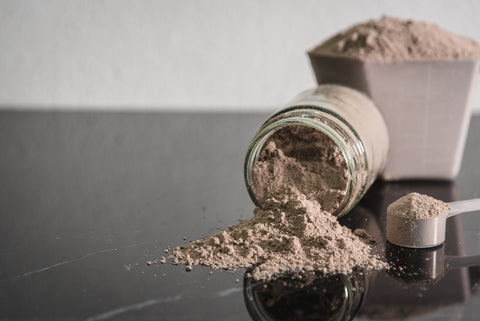
Your back muscles are key players in providing support, stability, and mobility to your spine. To keep them strong and healthy, it's essential to understand the role of protein, a crucial nutrient in maintaining and repairing muscles. Let's delve into how protein supports your back muscles and explore dietary suggestions to optimize your protein intake for a healthier spine.
The Role of Protein in Back Muscle Health
-
Muscle Repair and Growth:
- Protein contains amino acids, the building blocks for muscles. Adequate protein intake supports the repair and growth of back muscles, aiding in recovery after strain or injury.
-
Muscle Strength and Function:
- Back muscles, including the erector spinae and latissimus dorsi, require protein for strength and proper functioning. Strong muscles contribute to better spine support.
-
Posture Support:
- Protein helps maintain muscle mass, which plays a significant role in supporting proper posture and reducing the risk of back pain due to poor alignment.
Optimizing Protein Intake for a Healthy Back
-
Lean Protein Sources:

Incorporate lean protein sources into your diet. Options like chicken, turkey, fish, tofu, legumes, and low-fat dairy are excellent choices.
2. Balanced Meals with Protein:

Aim for balanced meals that include a source of protein with each serving. For example, pair grilled chicken with vegetables or add beans to salads.
3. Healthy Snacks with Protein:

Opt for protein-rich snacks to sustain energy and support muscle health. Snacks like Greek yogurt, nuts, seeds, or hummus with veggies are great choices.
4. Spread Protein Intake Throughout the Day:

Distribute your protein intake evenly across meals and snacks to ensure a steady supply of amino acids for muscle repair and maintenance.
5. Consider Protein Supplements, if Needed:

If it's challenging to meet your protein needs through diet alone, consider protein supplements like whey protein powder or plant-based options. Consult a dietitian for guidance.
6. Post-Workout Nutrition:

After exercise, include protein-rich foods to aid muscle recovery. A protein shake or a chicken and quinoa bowl are ideal choices post-workout.
7. Variety in Protein Sources:

Incorporate a variety of protein sources into your diet to ensure you receive a broad spectrum of nutrients. This can also help prevent dietary monotony.
Balancing Protein with Overall Nutrition
Remember, while protein is vital for back muscle health, a balanced diet is key to overall spine wellness. Ensure you're also getting essential nutrients like calcium, vitamin D, omega-3 fatty acids, and a variety of vitamins and minerals from different food sources.
By optimizing your protein intake and maintaining a well-rounded diet, you can support your back muscles, promoting strength, flexibility, and resilience. Consider these dietary suggestions as part of a holistic approach to maintaining a healthy back and reducing the risk of discomfort or injury.




